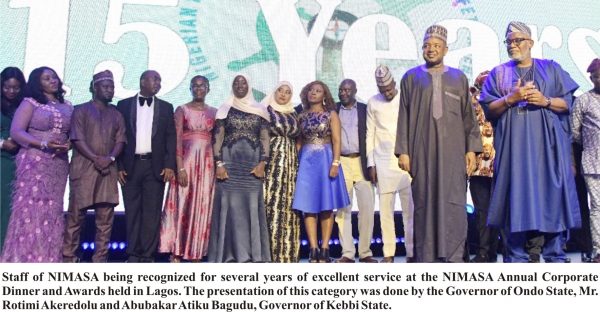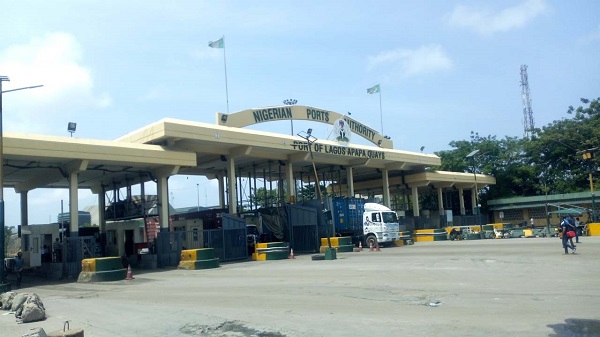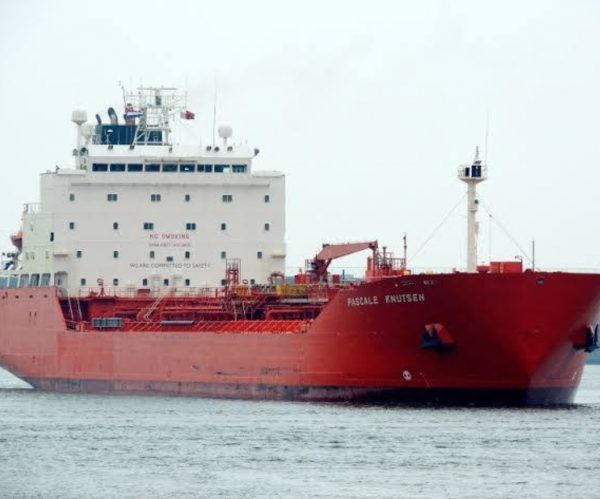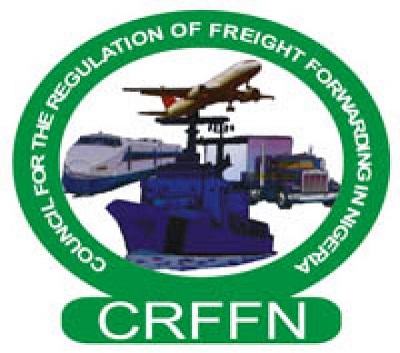Local Content: Nigeria Loses N55 billion Annually As Shipowners Seek Exclusivity
 · Baro River Port Has Huge Economic Benefits For Nigeria- Mamora
· Baro River Port Has Huge Economic Benefits For Nigeria- Mamora
By Kenneth Jukpor
Indigenous ship-owners have raised alarm that Nigeria loses over N55 billion annually via lighterage operations in the nation’s oil and gas sector as foreign vessels dominate the business despite the existence of a Cabotage law.
Since the nation’s daily consumption of petroleum is at an average of 60 million litres and the freight components per litre in lighterage operations ranging from N2.50 to N3; using the minimum N2.50 freight cost, the nation loses N150 million daily and a colossal N54,750,000,000 yearly.
Lighterage, also called lightering, is the process of transferring cargo between vessels of different sizes, usually between a barge and a bulker or oil tanker. Lightering is undertaken to reduce a vessel’s draft in order to enter port facilities which cannot accept very large ocean-going vessels.
As part of efforts to correct this capital flight, the President of the Nigerian Indigenous Ship-owners Association (NISA) Mr. Aminu Umar has reiterated the need for the government to ensure lighterage operations trade within the nation’s coastal and inland waters is exclusively reserved for indigenous ship owners.
Umar expressed dissatisfaction on the issue sixteen years after the enactment of the Cabotage Act as the government has not lived up to its promise to allow only Nigerian vessels move petroleum products from import vessels anchored at Cotonou/Lome offshore to Nigerian ports.
He said; “The total earnings in the lighterage operations for the oil and gas sector is $150 million at the minimum and Nigerians participating in this business don’t make upto $20 million. The overall business has potentials to be upto $200 million per annum yet Nigeria can’t boast of doing more than 15%, not upto $30 million in the operations”
Umar admonished the government to enforce the Cabotage Act by ensuring that only Nigerians are allowed to do the business in the country.
“We want the government to ensure that only Nigerian owned vessels and Nigerian flagged vessels are allowed to the business. This is already enshrined in the Cabotage Act. The government just has to enforce it” he said.
Also speaking with MMS Plus on his maritime agenda for 2019 as an indigenous ship-owner, the Lagos Coordinator, NISA, Capt. Taiwo Franklin Akinpelumi urged the federal government to grow local content by guaranteeing exclusivity to cargo with special emphasis on lighterage.
“Look at the issue of lighterage operations. Indigenous operators need the government to guarantee exclusivity to certain cargo so that the sector can grow. How would indigenous ship owners fare if they have one million ships without cargoes. NIMASA should make concerted efforts and try to convince the Nigerian National Petroleum Corporation (NNPC) on this issue because this is a viable way to grow local content in shipping business”, he said.
Akinpelumi stressed that as the regulatory body in-charge of shipping, the onus was on NIMASA to enlighten and engage NNPC on the need to make certain trade decisions.
“There is no way NNPC would decline such strong recommendation from NIMASA if NIMASA says this is what has to be done to grow local content. NNPC may say Nigerian operators aren’t on par with foreign operators and we aren’t doing things according to the global best standards, they forget that practice makes perfect” he argued.
He also stated that exclusivity to lighterage operations would enable indigenous ship-owners maintain their vessels to meet global standards as lack of jobs had led many ship-owners loss their investments.
Capt. Taiwo urged NIMASA to be more accommodating while he suggested that indigenous operators can enter into agreement with NNPC and sign indemnity to cover for any loss as a result of the state of the vessels.
According to him, this development would make the ship owners sit up and ensure the business goes smoothly even as it enables them meet the global standards enforced by NIMASA.
“All developed maritime nations started from the scratch. They didn’t just emerge with vessels that met global standards. America, Britain, Singapore, among others started by protecting indigenous ship owners who utilized the available ships at the time before they liberalized. They decided to liberalize because they knew that they had reached a level where they could complete on the global scene. Nigeria has to deploy the same strategy” he added.
Baro River Port Has Huge Economic Benefits For Nigeria- Mamora
The Managing Director of the National Inland Waterways Authority (NIWA) Senator Mamora Olorunnimbe has projected that the Baro river port would usher in massive economic benefits for Niger State and the nation at large.
Mamora was speaking to MMS Plus during an exclusive chat ahead of the commissioning of Baro port in Niger State by President Mohammadu Buhari on Saturday January 19th, 2019.
“Baro Port has huge economic benefits for the host community, Niger State and the nation at large. The movement of goods, passengers and services would be enhanced with this facility. Don’t forget that the port has been in existence since the pre-colonial days. What has been done now is to modernize it and make it in conformity to the standards of a modern river port” he said.
Highlighting other potentials of the N6 billion project built by Chinese firm (CGCC Global Project Nigeria Limited), Mamora said the Baro port would provide massive employment opportunities for youths in the Niger State and reduce the problem of youth restiveness.
“The port would improve the movement of goods and people from the Northern to the Southern part of the country. It can also serve as a port of transshipment for goods coming from other countries. It would improve trade interaction between the Northern part of the country and the Southern part and the multiplier effect would be massive” he added.
Baro port is equipped with a Mobile Harbour Crane, Transit shed, Administrative block, fire hydrant system, water treatment plant, Reach stacker, 100KVA power generating set, and three numbers forklifts of various tonnages.
It is one of the River Ports built to support the dredging of Lower River Niger project. Onitsha River Port has already been rehabilitated while Oguta and Lokoja River Ports are nearing completion.
The Baro river port is expected to create at least two thousand direct jobs and hundreds of thousands indirect jobs. It will help keep off the road several heavy duty trailers and trucks, thereby extending the life span of Nigerian roads.






